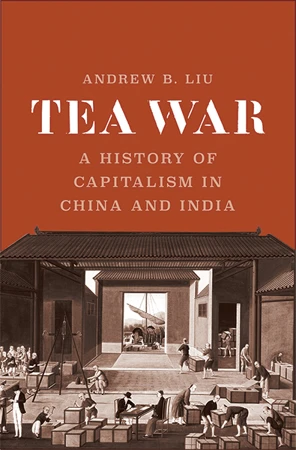Tea War – A History of Capitalism in China and India

Blurb
Tea remains the world’s most popular commercial drink today, and at the turn of the twentieth century, it represented the largest export industry of both China and colonial India. In analyzing the global competition between Chinese and Indian tea, Andrew B. Liu challenges past economic histories premised on the technical “divergence” between the West and the Rest, arguing instead that seemingly traditional technologies and practices were central to modern capital accumulation across Asia. He shows how competitive pressures compelled Chinese merchants to adopt abstract industrial conceptions of time, while colonial planters in India pushed for labor indenture laws to support factory-style tea plantations. Characterizations of China and India as premodern backwaters, he explains, were themselves the historical result of new notions of political economy adopted by Chinese and Indian nationalists, who discovered that these abstract ideas corresponded to concrete social changes in their local surroundings. Together, these stories point toward a more flexible and globally oriented conceptualization of the history of capitalism in China and India.Book summary
A persistent feature of some contemporary economic history is the fragmented study of nation-states as atomistic entities and the ontological premise of inherent, traditional features of societies as teleological explanations for their relative historical success or failure in economic modernisation. Andrew B. Liu in Tea Wars offers an important remedy. He explores the case of the British-Indian and Chinese tea industry in the late nineteenth and early twentieth century, focusing on competitive interdependent ties forged by trade and the historically contingent outcomes. The emergent production systems in India and China came to be based on intensive, unfree forms of çoolie and peasant labour that contributed to immense fortunes for the British and Chinese traders alike and were central to capitalist accumulation. This contrasts with the more euro-centric accounts that placed mechanised production and free labour within the West as the primary mode and site of capitalist accumulation; and the persistence of unfree labour in the South as a cause for its historical backwardness. Replete with interesting historical anecdotes, this book offers a lucid and original contribution to the debate on historical economic divergence and global history of capitalism.

